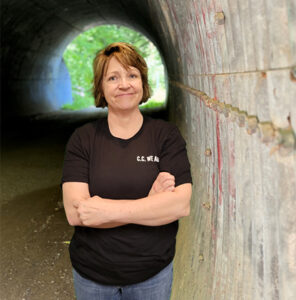Service Array:
Individual Skill Development and Enhancement

I was born and raised in a small town in Central Wisconsin, where everyone knew everyone else. Growing up in a community of familiar faces had its perks—there was a sense of belonging that came from seeing friends of my grandparents, neighbors, and classmates wherever I went. But there was also an unspoken set of rules about what it meant to be “normal.” During the 80s and 90s, it felt like everything had to fit into this mold: you played sports, wore the right jeans, and drove the right car. Trying something different? That was risky. And the biggest risk of all was sharing how you felt.
I followed the script like everyone else, but I always felt a little out of place. My brother thrived in that environment—he was good at sports, had great grades, and everyone loved his sense of humor. I was shy, unsure of myself, and struggled to find my own path. I didn’t know what I liked, or who I wanted to be, and the pressure to conform left me feeling disconnected and anxious. Thankfully, my mom, who had always been well-respected in our community, took a step that changed my life. She took me to therapy.
It wasn’t easy at first. I remember sitting through those early therapy sessions, shrugging and saying “I don’t know” to questions about what I enjoyed. I was so used to liking what others liked that I had forgotten how to think for myself. But over time, with my mom’s support and persistence, I started to find my voice. I gained a little confidence—enough to start stepping outside my comfort zone.
But as I got older and gained more freedom, I found another way to feel comfortable: alcohol. It helped me open up and feel less inhibited, and for a while, I thought I had found my place. Bars became a refuge, and drinking made me feel like I finally fit in. But that comfort came at a cost, and it didn’t take long to realize that alcohol wasn’t a solution—it was a fast path to trouble.
With the same determination my mom had shown when she first took me to therapy, I eventually chose to make a change. I moved away from my hometown, found new surroundings, and started to see that “normal” wasn’t something I had to live up to—it was something I could define for myself. Moving away gave me the space I needed to figure out who I really was, without the pressure to conform to someone else’s idea of a perfect life.
Today, I’m proud of the journey I’ve been on. It’s taken more than 20 years, but I can now say that I’ve found so many things I love. I’ve learned to laugh, to embrace who I am, and to see that there’s no one way to be “normal.” I know what it’s like to struggle—with anxiety, with self-worth, and with addiction. And I also know what it’s like to overcome those struggles and come out stronger on the other side. My journey has given me deep empathy for others, and I hope that by sharing my story, I can help others see that they, too, can create their own path—one that’s true to who they really are.
